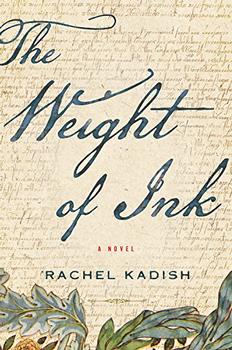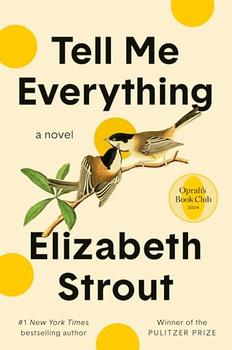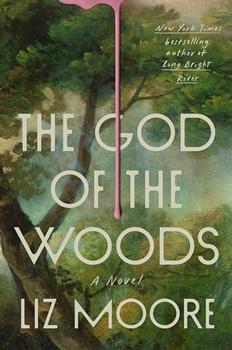Write your own review!
Jennifer
Totally fascinating!
I listened to, rather than read, this marvelously written (and narrated) book. The history is about a time in which I had very little knowledge. The historical oppression of women and Jews is nothing new, but this book brings to light the strength that can be found if one is determined. I highly recommend this book to anyone who loves historical fiction.
David Polk
A Really Good Book
It took a while before this novel grabbed me, but once it did it didn't let go!
carmen
The Weight of Ink
Excellent, and very unusual.
 Cloggie Downunder
Stirring and captivating
Cloggie Downunder
Stirring and captivating
“Nothing of the building’s exterior – not even the stone walls, with their once-giant wingspan – had prepared him for this. The staircase was opulence written in wood. The broad treads ascended between dark carved panels featuring roses and vines and abundant fruit baskets; gazing down from high walls, their faces full of sad, sweet equanimity, were more carved angels. And halfway up the stairs, two arched windows let in a white light so blinding and tremulous, Aaron could swear it had weight. Windows to bow down before, their wrought-iron levers and mullions casting a mesmerizing grid across the carved wood: light and shadow and light again.”
The Weight of Ink is the third novel by American author, Rachel Kadish. In 1657, nineteen-year-old Ester Velasquez and her brother Isaac accompanied Rabbi HaCoen Mendes from Amsterdam to London. The rabbi, tortured and blinded by Inquisitors, was going to minister to London’s Jewish community; the siblings had just been orphaned in a house fire.
Late in the year 2000, history professor Helen Watt is asked to examine a cache of books and papers discovered under a staircase in a 17th Century London mansion. Written in Hebrew and Portuguese, the papers appear to date from the mid-seventeenth century, and concern Jewish refugees from the Inquisition. This is potentially an important find, and Helen engages a young American post-graduate student, Aaron Levy to assist her. Unfortunately, they don’t have exclusive access, and find themselves in a bit of a race to uncover the secrets held within.
As they examine the trove of papers, Helen and Aaron are surprised and excited to find that the scribe for the blind rabbi might have been a woman. Then, in between the lines of letters about false messiahs written in Portuguese, they discover the story, in Hebrew, of Ester Velazquez, a young Jewess educated by HaCoen Mendes (not quite accidentally, because the rabbi sees much despite his blindness), a young woman with an almost unquenchable thirst for philosophical knowledge and for discourse thereon. It’s a thirst so deep that she engages in subterfuge to attempt to satisfy it.
What a superb piece of historical fiction this is. Kadish carefully constructs her tale so that the reader shares the excitement of the small but significant discoveries, of facts slowly revealed, all the while bringing to life the daily routine of London’s seventeenth century Jewish community. The astute reader will, early on, catch the hint of “a gossamer-thin connection” that develops into quite a lovely irony by the end of the story.
Her characters, not necessarily likeable at first, slowly gain in appeal: Helen’s gruff exterior (a colleague describes her thus: “Behind the words she could read his regret that the one to make such a find had been Helen Watt – a dried-up scholar, inconveniently unphotogenic, on the cusp of a mandatory retirement no one but her would rue”) mellows somewhat; Aaron will initially strike the reader as arrogant and self-absorbed but his time with Helen definitely matures him: “How had he ever overlooked shy girls? It struck him that the fact that he wasn’t attracted to them might represent a flaw in his character, not theirs.”
Kadish gives the reader some exquisite descriptive prose: “She looked at him with the directness of someone making an inner calculus over which he was to have no influence” and “Today, when he’d peered under the staircase, it was as though what he’d starved for all these lifeless months of dissertation research had been restored to him. History, reaching out and caressing his face once more, the way it had years ago as he sat reading at his parents’ kitchen table. The gentle insistent touch of something like a conscience, stilling him. Waking him to a lucid new purpose” are examples. Stirring and captivating, this is not a short read, but is worth every minute invested.
Michelle M. (W. Warwick, RI)
The Weight of Ink
The Weight of Ink.
The title of this book seduced me from the start. I was immediately drawn in by the discovery of the hidden cache of 17th century papers under the staircase and the ensuing investigation into who the scribe "Aleph" really was. At times I felt as if I were being physically jerked out of one time period and plunged into the next because I would become so wrapped up in the tale at that particular moment and I wasn't quite ready to time travel just yet.
I think that's a testament to the brilliance of Kadish's writing. I could envision certain scenes with such clarity, whether it was the tiny room with the hearth where the Rabbi would dictate his letters to Ester, his Scribe, or the rough streets of the Jewish community as the Plague encroached; the sights, the sounds, the SMELLS, Kadish transported me across the centuries to walk those cobblestoned streets alongside Ester, especially when she would visit the book-filled street stalls or go to the bookbinders!
Sure, there were moments when I thought the book was growing ever larger even as I was reading it(!), but in hindsight, in my opinion anyway, there isn't much you could strip away without affecting the overall atmosphere and power of the story. Ester's character is extremely intelligent. She's a survivor. Imagine not being able to pursue your love of reading/writing simply because you're a woman? Unimaginable! Helen Watt, the professor, seems a not-so-lovable curmudgeon but we discover there's more to her than meets the eye as her relationship with her assistant, Aaron Levy, unfolds during the investigation and we also learn why she has that sketch of Masada on her office wall.
This was a thoroughly engrossing read. I really loved this book, however, the ending left me wanting; a little sad, maybe a little anticlimactic because I was expecting (hoping) for a somewhat different finish. Or maybe it was just that I finished it bleary-eyed at 3am and had to be in work in a few hours. But isn't that the time most of us finish the books we enjoy the most?
Ann D. (Clearfield, PA)
The Title Sold Me
The Weight of Ink is a book that found me. I was looking for the book that would draw me in at page one and keep me riveted the whole way through...it did. Rachel Kadish is an incredible writer, who after 560 pages left me wanting more. Each character was so believable, their voices so distinct, that I was sure that they were real. I would recommend this book to every lover of literature.
Kate S. (Arvada, CO)
Love the title and the book!
The Weight of Ink was a treat to read. The writing was lovely. So detailed; I felt like I was walking in the streets of London in 1665! The characters were well developed and it worked going back and forth from the two time periods (which does not always work in books).
So much to discuss, it would be a perfect book club selection. I would highly recommend it to anyone who likes historical fiction.
Colleen A. (Rome, GA)
The Weight of Ink by Rachel Kadish
If you like a novel that encompasses richly drawn characters and a historical mystery, you will enjoy this book as I did. As for the style, both the 1660 narrative, as well as the 2000 storyline are equally compelling. Ester's restricted role as a woman, the confines of the Jewish community and the horrors of the Plague are examples of how descriptive writing transports the reader to everyday life in 1665 London. Over three hundred years later, even though they posses more freedom, Helen and Aaron mull over their inner thoughts, fears and actions. They face restraints of a modern nature. Whenever a book makes me curious enough about a subject to do more research, it has a lot to recommend it. This novel is a great reminder of the legacy of the written word, ink on paper.




